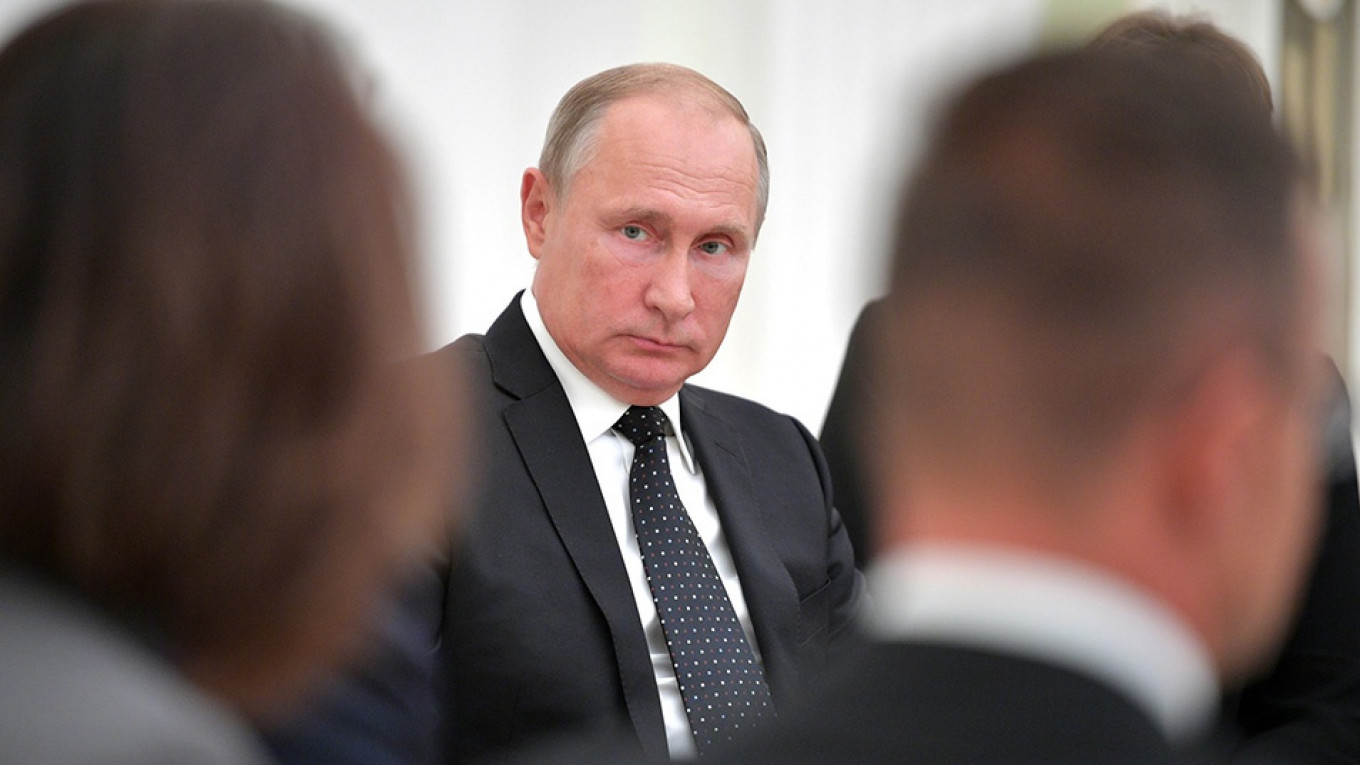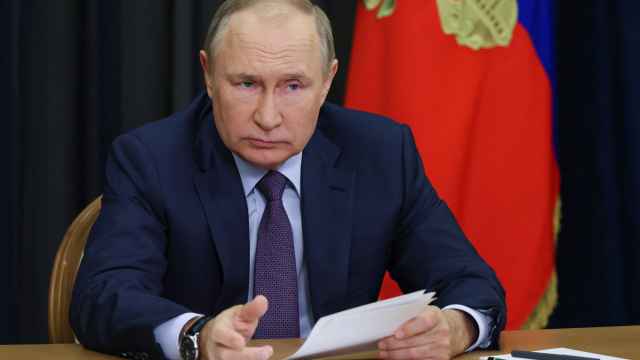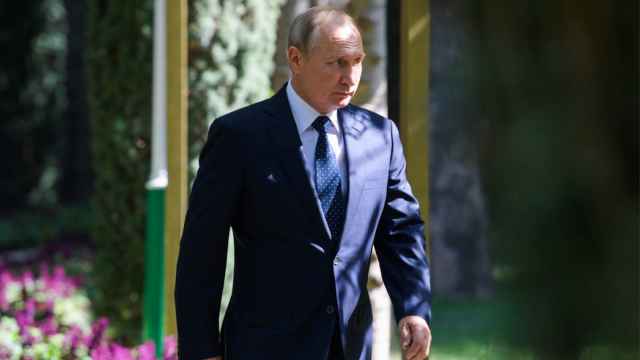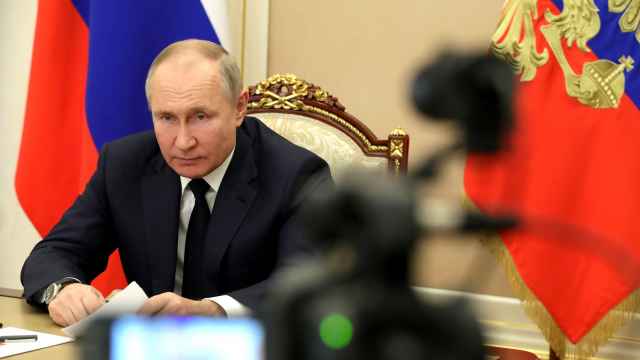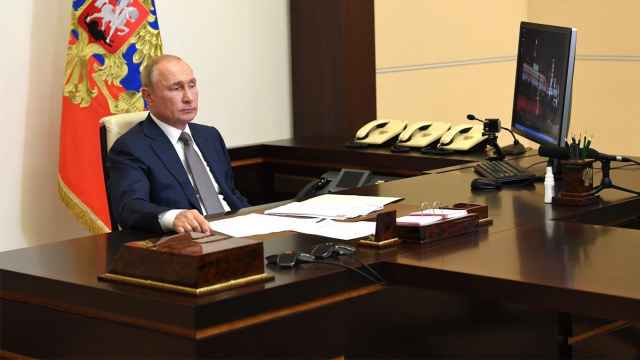Trust in President Vladimir Putin has dropped by 20 points in a year as the public continues to express dissatisfaction with a new law that pushes back retirement for many middle-aged working Russians, new survey results say.
Putin signed into law controversial legislation to raise the pension eligibility age to 65 for men and 60 for women starting in 2019 last week despite months of nationwide protests. The independent Levada Center pollster said last week that trust in the Russian presidency as an institution had sunk to pre-Crimean annexation levels amid rising anger over the unpopular law.
Results published by Levada on Monday showed Putin’s personal trustworthiness levels dropping from 59 percent in November 2017 to 39 percent in September 2018. In June, when the government announced the pension reform plans, 48 percent of respondents said they trusted Putin.
“People believe that the state is trying to solve its problems at the expense of the population,” Levada director Lev Gudkov told the Vedomosti business daily. “It encroached on something that the people consider their own – pension savings.”
Trust in Defense Minister Sergei Shoigu dropped by eight points in a year, tying him with firebrand systemic opposition figure Vladimir Zhirinovsky for second place in the trust rating with 15 percent.
Foreign Minister Sergei Lavrov’s trust levels dropped from 19 percent in November 2017 to 10 percent in the latest poll.
Prime Minister Dmitry Medvedev, the subject of jailed opposition leader Alexei Navalny’s corruption investigation that drew thousands of young Russians to the streets in 2017, traditionally tops the list of most distrusted politicians — with 31 percent in the latest poll. Putin’s mistrust levels rose from 7 percent to 13 percent in a year.
With 3 percent, Navalny himself is second only to Sergei Mironov, leader of the systemic opposition A Just Russia party, whom Levada’s respondents distrust the most.
Levada conducted the poll among 1,600 respondents in 52 Russian regions between Sept. 20 and Sept. 26. Respondents in the polls were asked to name five to six politicians whom they trust and distrust the most.
A Message from The Moscow Times:
Dear readers,
We are facing unprecedented challenges. Russia's Prosecutor General's Office has designated The Moscow Times as an "undesirable" organization, criminalizing our work and putting our staff at risk of prosecution. This follows our earlier unjust labeling as a "foreign agent."
These actions are direct attempts to silence independent journalism in Russia. The authorities claim our work "discredits the decisions of the Russian leadership." We see things differently: we strive to provide accurate, unbiased reporting on Russia.
We, the journalists of The Moscow Times, refuse to be silenced. But to continue our work, we need your help.
Your support, no matter how small, makes a world of difference. If you can, please support us monthly starting from just $2. It's quick to set up, and every contribution makes a significant impact.
By supporting The Moscow Times, you're defending open, independent journalism in the face of repression. Thank you for standing with us.
Remind me later.


